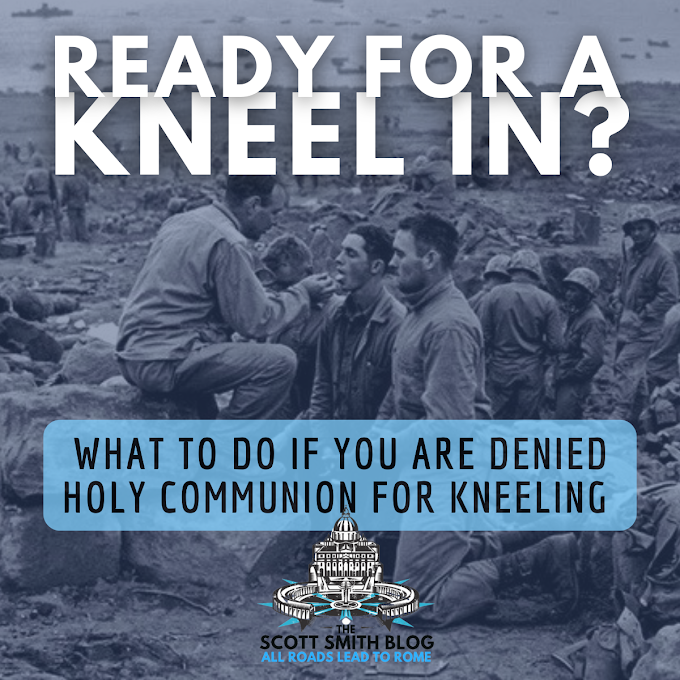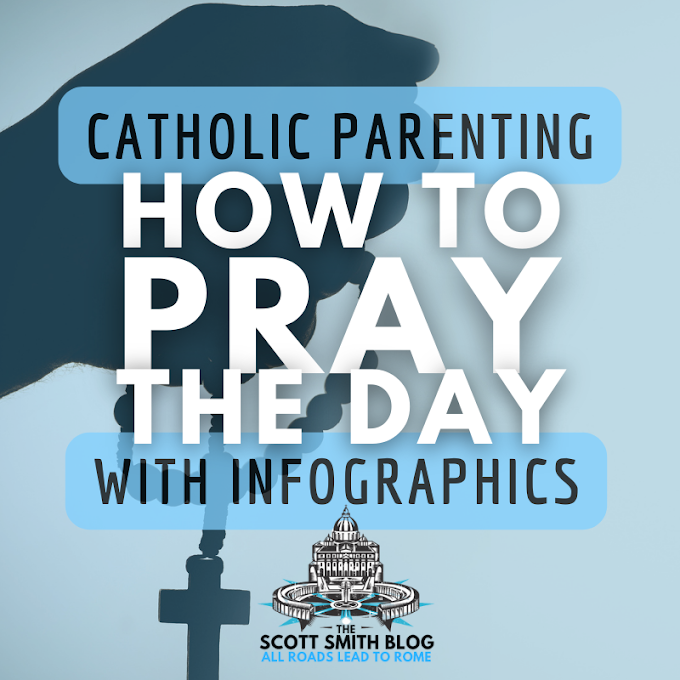The Supreme Court ruled 7-2 in favor of the Christian baker in the so-called Gay Wedding Cake Case. Will Masterpiece Cakeshop v. Colorado Civil Rights Commission be a landmark ruling for freedom of religion and freedom of conscience cases?
What will Masterpiece Cakeshop mean for religious freedom rights going forward? Is this the turn of the tide for Christian and conservative values?
But was Masterpiece a masterpiece? Unfortunately, the ruling may be narrow and limited for a few reasons.
○ Background: Jack Phillips, the baker, vs. the gay couple and Colorado
○ The Supreme Court's ruling and holding in Masterpiece
○ Key quotes, passages, and where to find the text of the Masterpiece decision
○ What is the Free Exercise Clause? The Establishment Clause?
○ Is Separation of Church & State in the Constitution?
○ Reasons the Masterpiece Cakeshop ruling may be limited
○ Majority, Concurring, and Dissenting Opinions in the Masterpiece ruling
○ Consequences of the Masterpiece ruling
Background of the Gay Wedding Cake Decision
Jack Phillips, the owner of Masterpiece Cakeshop, refused to create a wedding cake for a gay couple, Charlie Craig and David Mullins, back in 2012. Phillips explained that he could not cater for same-sex weddings, as such would violate his Christian beliefs.Phillips had also refused cakes for other occasions, including Halloween, bachelor parties, divorce. He had also refused to make cakes with alcohol used as an ingredient. Phillips was admirably consistent with his beliefs.
 |
| Jack Phillips, speaking before the Supreme Court building |
NOTE: The overtly artistic and Christian nature of Phillips' work formed an important basis for the Supreme Court's decision.
Craig and Mullins, the gay couple, filed a complaint with the Colorado Civil Rights Commission based on the Colorado Anti-Discrimination Act (CADA). CADA prohibits discrimination based on sexual orientation in a "place of business engaged in any sales to the public and any place offering services ... to the public."
The Civil Rights Commission ruled in favor of the gay couple and ordered Phillips to serve gay weddings if he were to stay in business. Not only that, the Commission ordered Phillips to attend anti-discrimination training. Not only that, Phillips was ordered to prepare two years worth of "quarterly compliance reports" documenting the number of patrons denied service.
Rice apparently is no longer serving on the Board of Commissioners.
Alliance Defending Freedom eventually took up Phillips case. Alliance Defending Freedom is also currently representing pregnancy centers and other worthy causes. Click here if you're interested in donating to them.
SIDEBAR: Why did Phillips go through all these obviously-biased Colorado Commissions? Why didn't he just go straight to the courts?
ANSWER: Before you can take up a matter against a state or the federal government in a "normal" court, you must first exhaust all your administrative remedies. All these commissions are governed by administrative law. There aren't "normal" judges (these are called Article III judges); there are Administrative Law Judges (ALJs). It sort of a maze to navigate.
Phillips also appealed to the Colorado Human-Rights Commission. This commission also ruled against him.
Eventually, Phillips was able to appeal to the Supreme Court. The justices heard arguments in support of the baker from Kristen Waggoner and the U.S. Solicitor General Noel Francisco. The Colorado Solicitor General Frederick Yarger and David Cole of the ACLU represented the gay couple.
During this ordeal, Phillips reports that he lost 40% of his income and over half of his employees. We are fortunate that someone, such as Jack Phillips, is willing to endure such an ordeal so that the rest of us can enjoy religious freedom.
How to read the Supreme Court's Masterpiece decision?
The Text of the Masterpiece Cakeshop Decision
The following are my thoughts and notes from reading the Supreme Court opinion(s) in Masterpiece Cakeshop, Ltd., et al. v. Colorado Civil Rights Commission et al.... but if you would like to read the text of the decision yourself, here is the link.
Key Quotes and Passages from the Masterpiece Cakeshop Decision
What was the Holding in the Masterpiece Cakeshop Decision?
In short, the Colorado Civil Rights Commission violated the Free Exercise Clause of the U.S. Constitution.
"[Colorado]’s treatment of Phillips’ case violated the State’s duty under the First Amendment not to base laws or regulations on hostility to a religion or religious viewpoint."
The Supreme Court then cited precedent: "The government, consistent with the Constitution’s guarantee of free exercise, cannot impose regulations that are hostile to the religious beliefs of affected citizens and cannot act in a manner that passes judgment upon or presupposes the illegitimacy of religious beliefs and practices." Church of Lukumi Babalu Aye, Inc. v. Hialeah, 508 U. S. 520.
"[Colorado]’s treatment of Phillips’ case violated the State’s duty under the First Amendment not to base laws or regulations on hostility to a religion or religious viewpoint."
The Supreme Court then cited precedent: "The government, consistent with the Constitution’s guarantee of free exercise, cannot impose regulations that are hostile to the religious beliefs of affected citizens and cannot act in a manner that passes judgment upon or presupposes the illegitimacy of religious beliefs and practices." Church of Lukumi Babalu Aye, Inc. v. Hialeah, 508 U. S. 520.
What is the Free Exercise Clause?
The Constitution states the following in the First Amendment: "Congress shall make no law respecting an establishment of religion, or prohibiting the free exercise thereof."
This part of the First Amendment includes the Establishment Clause and the Free Exercise Clause. The Establishment Clause basically prohibits the "establishment" of a state-sanctioned church, like the Church of England. These two form sort of a balancing test.
Where's Separation of Church and State in the Constitution?
You might be saying, "Wait! I thought the First Amendment said something about 'separation of church and state'!"
Guess what? "Separation of church and state" is not in the Constitution. That phrase comes from a 1802 letter by Thomas Jefferson to the Danbury Baptist Association of Connecticut, reproduced in pertinent part below:
I contemplate with sovereign reverence that act of the whole American people which declared that their legislature should "make no law respecting an establishment of religion, or prohibiting the free exercise thereof," thus building a wall of separation between Church & State. Adhering to this expression of the supreme will of the nation in behalf of the rights of conscience, I shall see with sincere satisfaction the progress of those sentiments which tend to restore to man all his natural rights, convinced he has no natural right in opposition to his social duties.
NOTE: This wall, according to Jefferson, was erected to protect rights of conscience, such as the baker of a wedding cake. This wall was not intended to restrict Christianity in general.
The phrase "separation of church and state" also was not cited by the Supreme Court until George Reynolds v. United States in 1879. George Reynolds was the secretary of Brigham Young. He presented himself as a test case for the federal government's prohibition of polygamy. The Free Exercise Clause was not a winner for Mr. Reynolds.
The phrase "separation of church and state" also was not cited by the Supreme Court until George Reynolds v. United States in 1879. George Reynolds was the secretary of Brigham Young. He presented himself as a test case for the federal government's prohibition of polygamy. The Free Exercise Clause was not a winner for Mr. Reynolds.
Back to Key Passages and the Holding in Masterpiece
"[Phillips] dilemma was understandable in 2012," i.e. before the Supreme Court recognized gay marriages in the 2015 decisions United States v. Windsor and Obergefell. Does that mean that the Supreme Court would have forced Phillips to bake the cake if the incident had occurred post-2015?
The Colorado Civil Rights Commission acted with "clear and impermissible hostility toward the sincere religious beliefs motivating [Phillips'] objection." This way of phrasing the baker's religious beliefs as "sincerely-held" sounds a lot like the phrasing in the Hobby Lobby decision, which Justice Gorsuch was also involved with in the lower courts. This may reveal something of Gorsuch's leadership of the Court.
The Court further criticized Colorado's handling of Phillips' religious beliefs: "Some of the commissioners at the Commission’s formal, public hearings endorsed the view that religious beliefs cannot legitimately be carried into the public sphere or commercial domain, disparaged Phillips’ faith as despicable and characterized it as merely rhetorical, and compared his invocation of his sincerely held religious beliefs to defenses of slavery and the Holocaust. No commissioners objected to the comments."
It is so good to hear the Supreme Court admonishing this all-too-common contempt for religious beliefs. The Court also admonished Colorado for treating Phillips differently than some other Colorado bakers who refused to make anti-gay cakes. The other bakers prevailed before the Commission because they were willing to sell the customers other items, even though Phillips, too, was willing to sell other items. "Yet the [Commission] did not address this point."
Colorado's "consideration of Phillips’ case was neither tolerant nor respectful of his religious beliefs." Moreover, the Commission evaluated Phillips' religious position in a negative light, while the Free Exercise Clause requires neutrality.
The Court seems to reject, albeit implicitly, Colorado's argument based on the Oregon v. Smith (1990) precedent. See, e.g. p. 7-8. Oregon v. Smith basically held that the Free Exercise Clause won't permit the use of prohibited drugs - a Native American's use of peyote, in particular. Why? Because the prohibition of drugs is a "valid and neutral law of general applicability."
Colorado's anti-discrimination law is apparently not such a law. The majority opinion later states, however, that religious objections, while protected, do not allow business owners to deny gays, etc. "equal access equal to goods and services under a neutral and generally applicable public accommodations law," p. 9, citing Newman v. Piggy Park.
The Supreme Court makes it clear that clergy are protected: "When it comes to weddings, it can be assumed that a member of the clergy who objects to gay marriage on moral and religious grounds could not be compelled to perform the ceremony without denial of his or her right to the free exercise of religion. This refusal would be well understood in our constitutional order as an exercise of religion, an exercise that gay persons could recognize and accept without serious diminishment to their own dignity and worth," p. 10.
Nevertheless, the next line is telling: "Yet if that [clergy] exception were not confined, then a long list of persons who provide goods and services for marriages and weddings might refuse to do so for gay persons, thus resulting in a community-wide stigma inconsistent with the history and dynamics of civil rights laws that ensure equal access to goods, services, and public accommodations."
The question becomes, as always, where to draw the line?
Why the Masterpiece Cakeshop decision may be limited ... unfortunately
Even during oral arguments back in December 2017, it was becoming obvious that Masterpiece Cakeshop has what Supreme Court insiders call "vehicle problems." This happens when a case doesn't quite tee up the issues correctly, and so the precedent established doesn't really settle the matter at hand.
Here are the issues with the Masterpiece Cakeshop case:
○ First, the gay couple demanded service at Masterpiece Cakeshop in 2012 prior to the Court's decision in Windsor and Obergefell. Phillips in part based his denial on that fact that, at that time, Colorado did not permit same-sex unions. Would the Court have ruled differently after the legalization of same-sex unions? Probably not, given the Court's admonishment of Colorado anti-religion bias, but we don't know.
○ Second, Justice Kennedy points out that the record was marred by the anti-Christian statements made by the Colorado officials. What would have happened if the officials had acted the same, but just kept their mouths shut? What if Commissioner Rice had not compared Christians like Phillips to Nazis?
What if the state merely appears to be neutral? Can actions alone demonstrate sufficient anti-religious bias?
○ Third, what kind of a wedding cake was this? The parties disagree on "the extent of the baker's refusal to provide service," Justice Kennedy states in the majority opinion (p. 2). Kennedy explains that "if a baker refused to design a special cake with words or images celebrating the marriage—for instance, a cake showing words with religious meaning—that might be different from a refusal to sell any cake at all." In this case, Phillips agreed to sell the couple other kinds of cakes.
"These details might make a difference," Kennedy concluded. That is to say, the Court could have made a different decision entirely.
Justice Kennedy's Majority Opinion, and the Concurring and Dissenting Opinions in the Masterpiece Cakeshop Decision
Also, pay attention to where the individual justices landed on the majority opinion. Justice Kennedy delivered the majority opinion, and was joined by Chief Justice Roberts and Justices Breyer, Alito, Kagan, and Gorsuch. Justice Kagan filed a concurring opinion, which Breyer joined. Justice Gorsuch filed a concurring opinion, which Alito joined. Justice Thomas filed an opinion which concurred only in part, but which concurred with the judgment. Gorsuch joined Thomas opinion, as well.The dissenting opinion was, of course, written by Justice Ginsburg, who was joined by Sotomayor.
Consequences of the Masterpiece Cakeshop Ruling
Louise Melling, the deputy legal director of the ACLU, which has been no ally of religious freedom, said that the Masterpiece Cakeshop ruling will have "tremendous implications for our anti-discrimination law."“It has been said, and I think accurately so, that this could be one of the most important First Amendment cases in terms of free speech and the free exercise of religion in a century or more, and it could be a landmark, seismic kind of case of First Amendment jurisprudence,” Representative Mike Johnson of Louisiana said in a news conference at the U.S. Capitol last September.
The Limiting Principle?
Melling also stated that the justices were "struggling to figure out the limiting principle" as to which products beyond the wedding cake, e.g. the suits, the makeup, the flowers, were sufficiently expressive to trigger protection from the First Amendment.Case in point, there is currently a florist, Barronelle Stutzman, awaiting her day in court for refusing to provide services for a same-sex wedding. The Washington Supreme Court ruled unanimously that broke the state's anti-discrimination law. Stutzman, like Phillips, claimed the Free Exercise Clause as her defense.
What will be this limiting principle that determines what kinds of goods or services are entitled to religious freedom? What will be the new test for religious freedom? Or will every kind of artisan eventually have to go before the Supreme Court?
As a final thought, in an apostolic exhortation on the proclamation of the Gospel, Pope Francis recently insisted that “no one can demand that religion should be relegated to the inner sanctum of personal life, without influence on societal and national life, without concerns for the soundness of civil institutions, without a right to offer an opinion on events affecting society.”





















0 Comments